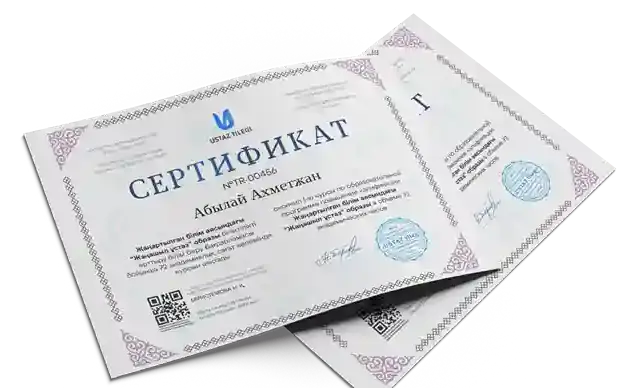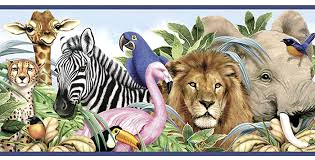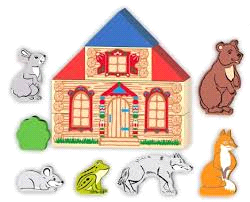Назар аударыңыз. Бұл материалды сайт қолданушысы жариялаған. Егер материал сіздің авторлық құқығыңызды бұзса, осында жазыңыз. Біз ең жылдам уақытта материалды сайттан өшіреміз
Жақын арада сайт әкімшілігі сізбен хабарласады

Бонусты жинап картаңызға (kaspi Gold, Halyk bank) шығарып аласыз


Ашық сабақ " Жануарлар"
Дипломдар мен сертификаттарды алып үлгеріңіз!


Материалдың толық нұсқасын
жүктеп алып көруге болады
|
LESSON: Unit 4 The world around us: Animals |
School:Koigeldi. |
|||||||
|
Date: |
Teacher name: Omarova.Z. |
|||||||
|
CLASS: 1 |
Number present: |
absent: |
||||||
|
Learning objectives(s) that this lesson is contributing to |
1.S3 pronounce basic words and expressions intelligibly 1.S5 produce words in response to basic prompts 1.L1 recognise short instructions for basic classroom routines spoken slowly and distinctly 1.L3recognise with support simple greetings 1.L3recognise the spoken form of a limited range of basic and everyday classroom words |
|||||||
|
Lesson objectives |
All learners will be able to: |
|||||||
|
||||||||
|
Most learners will be able to:
|
||||||||
|
||||||||
|
Some learners will be able to:
|
||||||||
|
||||||||
|
Previous learning |
Unit "The World Around Us" is based on knowledge and language skills from Units1, 2, 3. Students need to know the names of animals around us in their native language. |
|||||||
|
Plan |
||||||||
|
Planned timings |
Planned activities (replace the notes below with your planned activities) |
Resources |
||||||
|
Beginning
|
ORGANIZATIONAL MOMENT Prior Knowledge- Pupils recognize simple greetings Hello, children! Let's sing a song! Group 1: Hello! Hello! Hello! Hello! Hello! Hello! Hello! How are you? Group 2: Hello! Hello! Hello! Hello! Hello! Hello! Hello! I am fine! Thank you! Teacher: The topic of our lesson is “Animals”. (Point to the pictures of animals on the board)Today we’ll name some animals in English.
|
Song “Hello”
https://www.youtube.com/watch?v=AdukBVPk8Jw
|
||||||
|
Middle
|
SPEAKING DRILLS All pupils pronounce basic words denoting animals. Most pupils recognise basic intonation distinguishing questions from statements. Some pupils respond appropriately to some questions. Teacher talks to the class using puppet dolls representing animals from the fairy tale “The Little House": Hello! My name is Mouse. What’s your name? How are you? How old are you? PLAYING Pupils understand the meaning of words denoting animals. Game "Guess what animal it is" FORMATIVE ASSESSMENT LISTENING Pupils recognise basic colours and animals.
Fox is red. Bear is brown. Mouse is blue. Wolf is black. Rabbit is pink. CREATIVE WORK Most pupils participate in short conversations on the topic «The Little House".
LISTENING Pupils recognise basic words and sounds produced by animals.
WORKING WITH CARDS Pupils match animals with their habitats. PLAYING COMPUTER GAMES All pupils recognise basic words denoting animals. Most pupils recognise basic questions. Some pupils respond appropriately to some questions.
|
Puppets
Worksheetsof animals http://ejka.ru/blog/zagadki/1.html
http://deti-online.com/skazki/russkie-narodnye-skazki/teremok/
CD |
||||||
|
End 3-5 minutes |
FEEDBACK Pupils produce words in response to basic prompts. Show your mood |
|
||||||
|
Additional information |
||||||||
|
Differentiation – how do you plan to give more support? How do you plan to challenge the more able learners? |
Assessment – how are you planning to check learners’ learning? |
Cross-curricular links |
||||||
|
|
Cross-curricular links
Health and safety check
Values links
|
||||||
|
Reflection Were the lesson objectives/learning objectives realistic? What did the learners learn today? What was the learning atmosphere like? Did my planned differentiation work well? Did I stick to timings? What changes did I make from my plan and why? |
Use the space below to reflect on your lesson. Answer the most relevant questions from the box on the left about your lesson. |
|||||||
|
|
||||||||
|
Summary evaluation What two things went really well (consider both teaching and learning)? What two things would have improved the lesson (consider both teaching and learning)? What have I learned from this lesson about the class or individuals that will inform my next lesson? |
||||||||




